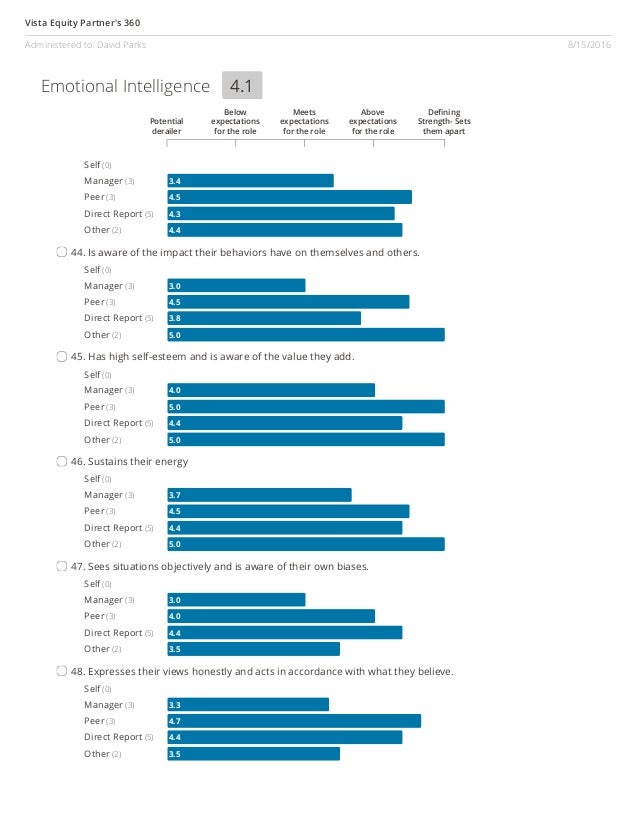
Vista Equity Standard Operating Procedures
Robert Smith is the Founder, Chairman, and Chief Executive Officer of Vista Equity Partners. A March 2018 Forbes profile described Vista’s performance: “Since the firm’s inception in 2000, Vista’s private equity funds have returned 22% net of fees annually to limited partners, according to PitchBook data. Annual realized returns, which reflect exits, stand at a staggering 31% net. His funds have already made distributions of $14 billion, including $4 billion in the last year alone. Not surprisingly given those numbers, Vista has become America’s fastest-growing private equity firm, managing $31 billion across a range of buyout, credit and hedge funds.” Vista owns many businesses including Marketo, Tibco, Omnitracs and Infoblox to name just a few.

Jul 7, 2017 - Instead, Vista Equity swooped in to help it further develop its technology. Vista's standard operating procedures, designed to rapidly. But the comparison of other private equity firms to Vista ends at acquisition Vista essentially runs all its companies like they are divisions of Vista (much like Oracle would run it), not independent companies. Like Oracle, Vista has standard hiring procedures across every company it.
You can find a full list on Vista’s web site. • “We are very disciplined buyers.” “You think about Warren Buffett and Henry Kravis, and to a great extent, Columbia seems to mint a whole bunch of people who understand value investing and go about it in a different way.” In addition to degree in chemical engineering from Cornell, Smith obtained an MBA from Columbia University Business School. There is little doubt that at Columbia Smith was taught that value investing as an analytical style is very different from value investing as a statistical factor in an index fund. Adobe photoshop cs3 crack keygen autocad 2018 torrent.
When you hear someone say something in the news or on social media like “Value stocks were up [or down] today” they are either (1) talking about value as a statistical factor or (2) are confused about the difference. To illustrate, the difference, Charlie Munger was not talking about value as a statistical factor when he said: “All intelligent investing is value investing — acquiring more that you are paying for.
You must value the business in order to value the stock.” What Munger means is: are there any types of intelligent investing where the objective is to pay more than an asset is worth? There are some assets for which an intrinsic value can’t be easily computed, but that is a different question than whether an asset should be purchased at a discount to its value. A business like Apple or Amazon can be a value stock if you are engaged in value investing as an analytical style.
A disciplined buyer like Vista only buys a security or asset when they can make the purchase at a price which represents a bargain when compared to its value. Buying an asset for more than it is worth hoping some greater fool will buy it for even more in the future, is neither disciplined nor investing. Another Columbia graduate named Warren Buffett believes: “The very term ‘value investing’ is redundant. What is ‘investing’ if it is not the act of seeking value at least sufficient to justify the amount paid?
Consciously paying more for a stock than its calculated value — in the hope that it can soon be sold for a still-higher price — should be labeled speculation.” Another point that has been made by Munger is also relevant to what Smith is talking about in the first quote in bold above. Munger has made it clear several times that Berkshire is a buyer of moats. Munger has said: “We buy barriers. Building them is tough.” Vista is also a buyer and not a builder of moats from scratch.
The skills and systems required to buy a moat at a bargain price are not the same as the skills and systems required to build one from scratch. • “No one was doing buyouts in tech startups.” “These software companies were truly value plays, from my perspective.” You must know one or more secrets in order to acquire something for less than it is worth. As Charlie Munger says: “Everyone has the idea of owning good companies. The problem is that they have high prices in relation to assets and earnings, and that takes all of the fun out of the game. If all you needed to do is to figure out what company is better than others, everyone would make a lot of money. But that is not the case.” Howard Marks puts it this way: “If you are investing based on a fact that everybody knows, it can’t possibly constitute an advantage and it can’t possibly have been omitted from the price.